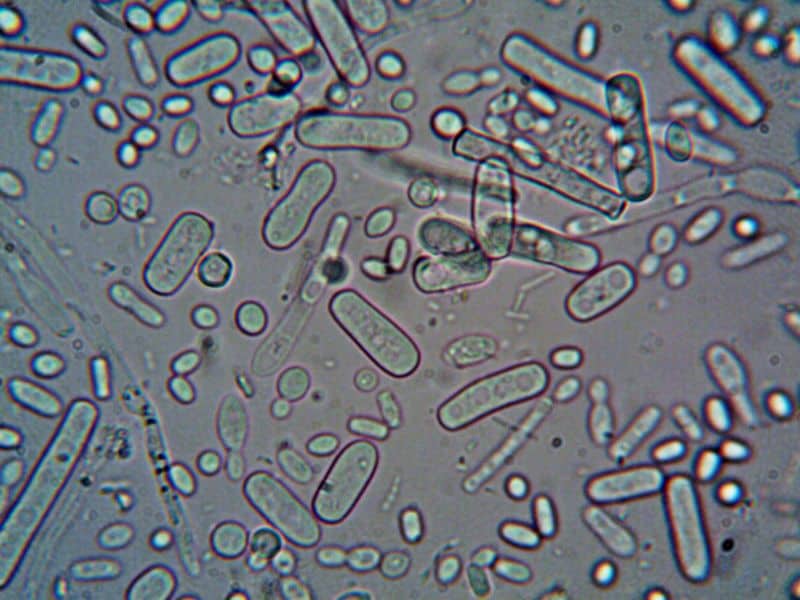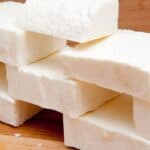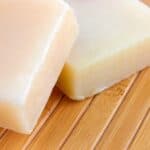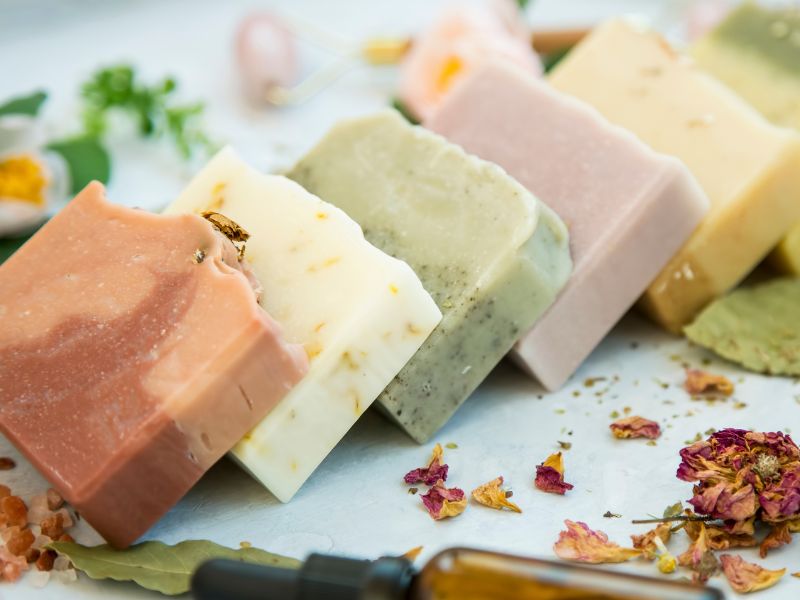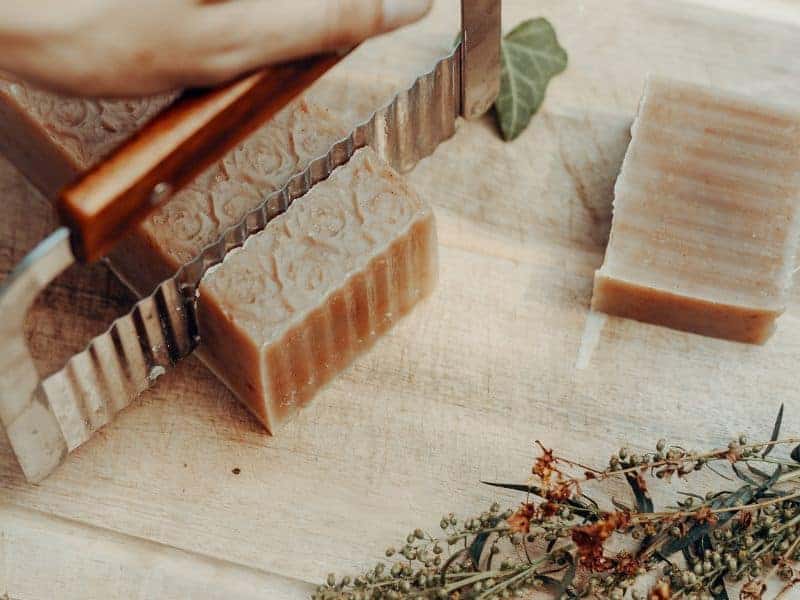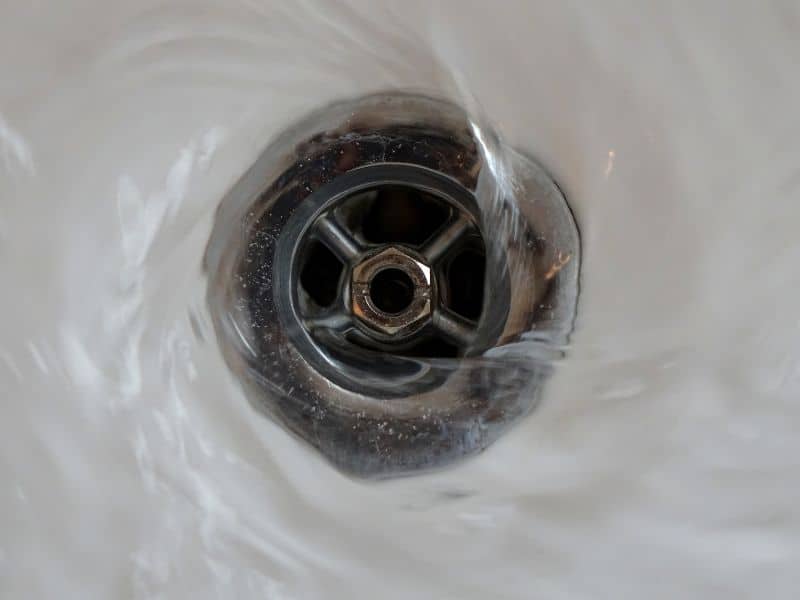Are you looking for an alternative to store-bought antibacterial soap? Can homemade soap can be made so that it has antibacterial properties? There are many anecdotal reports of people who have seen positive results from using it. Let’s take a look at what makes up handmade soap and whether or not it can provide any protection against bacteria and other germs.
Not all homemade soap is antibacterial. However, homemade soap can be antibacterial when it is made with ingredients that have antibacterial properties, such as tea tree oil, lavender oil, and thyme oil. These ingredients can help kill bacteria and other microorganisms.
You can even get synthetic antibacterial ingredients to add to your homemade soap if you do not care about using all-natural ingredients. These artificial additives, such as triclosan, can help to make homemade soap more effective in killing germs. Let’s take a closer look at this topic.
The Science Behind Homemade Soap
Explanation of The Soap Making Process
Homemade soap is typically made using a process called saponification. This process involves mixing an alkaline substance, such as lye, with a fat or oil.
The mixture is then heated and stirred until it thickens into a smooth and creamy consistency. The resulting substance is soap, which can be molded and cut into bars.
Differences Between Homemade And Commercial Soap
One of the main differences between homemade and commercial soap is the ingredients used. Commercial soap is often made with synthetic ingredients, such as detergents and artificial fragrances, which can be harsh on the skin.
Homemade soap, on the other hand, is typically made with natural ingredients, such as oils, fats, and essential oils, which are more gentle and nourishing to the skin.
Chemical Composition of Homemade Soap
The chemical composition of homemade soap depends on the ingredients used in the soap-making process. Most homemade soap contains a combination of oils or fats, such as olive oil, coconut oil, or shea butter, mixed with an alkaline substance, such as lye.
When these ingredients are combined and heated, they undergo a chemical reaction called saponification, which transforms them into soap.
Antibacterial Properties of Homemade Soap
The antibacterial properties of soap come from the chemical reaction that occurs during the saponification process. When soap is mixed with water, it creates a lather that helps to remove dirt and bacteria from the skin’s surface.
What Can I Add To Soap To Make It Antibacterial?
You can use additives with antibacterial properties to help your soap have antibacterial properties. Additives such as tea tree oil, lavender oil, and eucalyptus oil are all known for their antibacterial properties.
Natural Antibacterial Properties
Additionally, many natural ingredients commonly used in homemade soap have antibacterial properties. For example, tea tree oil, lavender oil, and eucalyptus oil are all known for their antibacterial properties and are frequently used in homemade soap.
There are many natural ingredients commonly used in homemade soap that have antibacterial properties.
Here are some examples:
- Tea tree oil
- Lavender oil
- Eucalyptus oil
- Peppermint oil
- Rosemary oil
- Thyme oil
- Oregano oil
- Lemon oil
- Grapefruit seed extract
- Neem oil
- Aloe vera gel
- Raw honey
- Cinnamon
- Turmeric
- Activated charcoal
It’s important to do thorough research and use safe and tested recipes when making homemade soap.
Benefits of Homemade Antibacterial Soap
Homemade antibacterial soap offers a variety of benefits compared to commercial soap products.
Here are a few of the top benefits of using homemade antibacterial soap:
Natural Ingredients
Homemade soap is made from natural ingredients, which means that you can avoid the harsh chemicals and synthetic fragrances that are commonly found in commercial soaps. By using natural ingredients, you can avoid exposing your skin to potentially harmful chemicals and enjoy a more gentle and nourishing cleansing experience.
Antibacterial Properties
Homemade soap can be infused with natural ingredients that have antibacterial properties, such as tea tree oil, lavender oil, and thyme oil. These ingredients can help kill bacteria and other microorganisms that can cause skin infections, making homemade antibacterial soap a great option for those with sensitive or acne-prone skin.
Cost-Effective
Making soap at home can be more cost-effective than buying commercial soap products. While the initial investment in soap-making supplies may be higher, the cost per bar of soap is typically lower than buying pre-made soap products. Additionally, you can make large batches of soap at once, which can save you time and money in the long run.
Customizable
When making homemade soap, you have the ability to customize the scent, color, and texture of your soap to your liking. This allows you to create a unique and personalized soap product that meets your specific needs and preferences.
Eco-Friendly
Making soap at home is an eco-friendly option, as it allows you to reduce waste and avoid the use of plastic packaging. By using natural ingredients and avoiding synthetic fragrances and chemicals, you can also reduce your environmental impact and promote a more sustainable lifestyle.
Homemade antibacterial soap offers a variety of benefits over commercial soap products, including natural ingredients, antibacterial properties, cost-effectiveness, customizability, and eco-friendliness.
Scientific Evidence Supporting Antibacterial Soap
The effectiveness of antibacterial soaps in reducing the transmission of bacteria has been supported by numerous scientific studies.
One of the key ingredients in antibacterial soaps is triclosan, a broad-spectrum antimicrobial agent that can kill a wide range of bacteria.
A study published in the Journal of Food Protection stated that:
“Antibacterial soaps can reduce the spread of harmful bacteria that often leads to foodborne illness.” –www.newswise.com
Another ingredient commonly found in antibacterial soaps is benzalkonium chloride (BAC), which has been shown to be effective against a variety of bacteria, including those that cause skin infections.
The Potential Drawbacks of Using Antibacterial Soap
There are potential drawbacks to using these types of soaps that are important to consider.
Antibiotic Resistance
One of the main concerns associated with the use of antibacterial soap is the risk of contributing to antibiotic resistance. Antibacterial soaps contain chemicals such as triclosan and benzalkonium chloride that can kill a wide range of bacteria, including both harmful and beneficial ones.
Overuse of these chemicals can lead to the emergence of antibiotic-resistant bacteria that are difficult to treat with traditional antibiotics.
Possible Harm to The Skin Microbiome
Another potential drawback of using antibacterial soap is the disruption of the skin microbiome. The skin microbiome is a complex ecosystem of microorganisms that play a vital role in maintaining the health of the skin.
Antibacterial soaps can disrupt this delicate balance by killing beneficial bacteria, which can lead to skin irritation, dryness, and even infection.
Lack of Regulation
Despite the potential risks associated with the use of antibacterial soap, the industry is largely unregulated. This means that manufacturers are not required to provide evidence of the safety or effectiveness of their products.
Tips for Making Homemade Antibacterial Soap
While making soap at home can be a fun and rewarding experience, it’s important to keep in mind a few key tips to ensure that your soap is both safe and effective. In this article, we will discuss some important tips for making homemade antibacterial soap.
Use Safe Ingredients
One of the most important things to keep in mind when making homemade soap is to use safe and high-quality ingredients. It’s important to use a reliable recipe that has been tested and proven to work.
Natural ingredients such as essential oils and herbal extracts can be great options for adding antibacterial properties to your soap, but it’s important to research the safety and efficacy of each ingredient before using it.
Use the Correct Amount of Lye
Lye is an essential ingredient in soap making, but it can be dangerous if not used correctly. It’s important to follow the recipe carefully and use the correct amount of lye to ensure that your soap is safe and effective.
Too much lye can cause the soap to be too harsh on the skin, while too little can result in a soap that is not effective in cleaning or sanitizing.
Use a Digital Scale
When making soap, it’s important to use precise measurements to ensure that the recipe is followed correctly. Using a digital scale is the best way to achieve this level of precision.
It’s important to measure all ingredients accurately to ensure that your soap turns out as intended.
Follow Proper Safety Procedures
Soap making can involve dangerous chemicals, so it’s important to take proper safety precautions. This includes wearing gloves and protective eyewear, working in a well-ventilated area, and avoiding skin contact with lye.
It’s also important to keep children and pets away from the soap-making area to avoid accidents.
Allow the Soap to Cure
After making soap, it’s important to allow it to cure for several weeks before using it. This will help ensure that the soap is fully saponified and safe for use.
During the curing process, the soap will harden and become more gentle on the skin.
Store the Soap Properly
After the soap has cured, it’s important to store it properly to ensure that it remains safe and effective. Store the soap in a cool, dry place away from sunlight and moisture.
This will help prevent the growth of bacteria and other microorganisms that can affect the quality of the soap.
Conclusion
In conclusion, not all homemade soap is antibacterial but you can make homemade soap with antibacterial properties. This soap can be a great way to keep your family safe from harmful bacteria. However, it’s important to use the correct ingredients, follow safety protocols, and store the soap properly in order to ensure that it is both safe and effective.
By following these tips and exercising caution when making homemade antibacterial soap, you can help keep your family safe from germs and enjoy all of the benefits of making your own soap!

